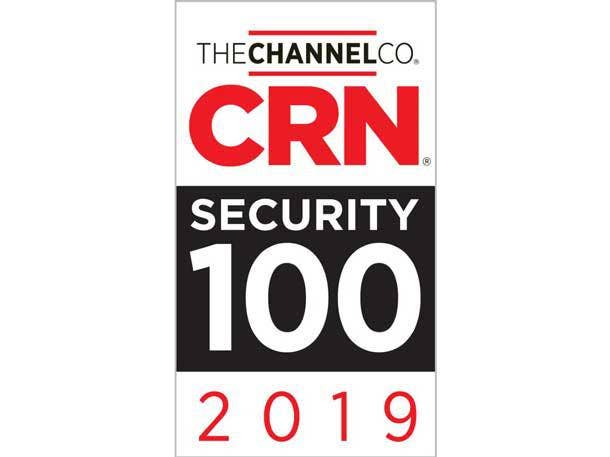The 2019 Security 100

The CRN Security 100 is intended to bring solution provider transparency and light to the otherwise opaque and difficult to navigate security vendor market. The list is intended to help partners round out their line card by providing an in-depth look at 100 channel-centric vendors across five major market segments.
The network security landscape faces now internal and external cyber threats as the adoption of Internet of Things and BYOD technologies. Companies are now turning to next-generation firewalls to secure their business infrastructure from threats like ransomware, advanced persistent threats (APTs), zero-day attacks, malware, and unauthorized access.
Companies that can help address these challenges have enjoyed great success, with cloud security leader Netksope hauling in $168.7 million to help drive large scale global data center expansion. And Cisco looks to be the first vendor to marry network and identity security together with its $2.35 billion purchase of unified access and multifactor authentication superstar Duo Security.
Endpoint security vendors have moved to make themselves more well-rounded by having robust offerings around both endpoint protection as well as endpoint detection and response (EDR). Legacy endpoint players have turned to everything from partnerships and agreements to mergers and acquisitions, and new product development to achieve growth in the global EDR market.
Last year was huge for the leading next-generation endpoint security players, with Carbon Black hauling in $152 million in an initial public offering, Tanium raising $375 million across two separate funding rounds, CrowdStrike receiving an additional $200 million of private equity funding, and Cylance receiving an additional $120 million in private equity before being purchased by BlackBerry for $1.4 billion.
In the SIEM, risk, and threat intelligence space, cloud-based offerings have gained traction since they're cost effective and don't require purchasing, installing, or maintaining hardware or software. Growth has been most pronounced around the banking, financial services, and insurance vertical, where increased instances of spyware, Trojans, viruses, ransomware, and other malware are driving greater adoption.
Vendors achieving success around SIEM, risk and threat intelligence have been in the money, with Tenable raising $209 million in an IPO and Venafi receiving $100 million in a funding round led by TCV. Companies in the space have also made appealing acquisition targets, with AT&T buying AlienVault to expand its reach to smaller businesses and Thoma Bravo taking a majority stake in LogRhythm.
From a web, email and application security standpoint, organizations across the world are deploying tools to safeguard their web and mobile properties as business applications increasingly become the victim of breaches. The need to protect enterprise data from sophisticated application layer attacks coupled with the increased usage of third-party applications are driving growth in the space.
Thoma Bravo has made a massive investment in this space, acquiring application and data protection vendor Imperva for $2.1 billion, security and storage vendor Barracuda Networks for $1.6 billion, and application security testing vendor Veracode for $950 million. Zscaler also cashed in on investor interest around web security, raising $192 million in an initial public offering.
When it comes to data protection and identity access management, adoption has been driven by a rise in compliance management awareness across various industries and higher demand for mobility tools. Demand is particularly strong in the audit, compliance, and governance segment since compliance management and the securing of data is crucial in the public sector, utilities, and retail space.
Private equity threw its weight around in this space as well, with Thoma Bravo buying from early investors a majority stake in Centrify to help the company expand its product capabilities both organically and through acquisitions. Three months later, Centrify agreed to spin off its Identity-as-a-Service business into a stand-alone company called Idaptive, which will also be owned by Thoma Bravo.